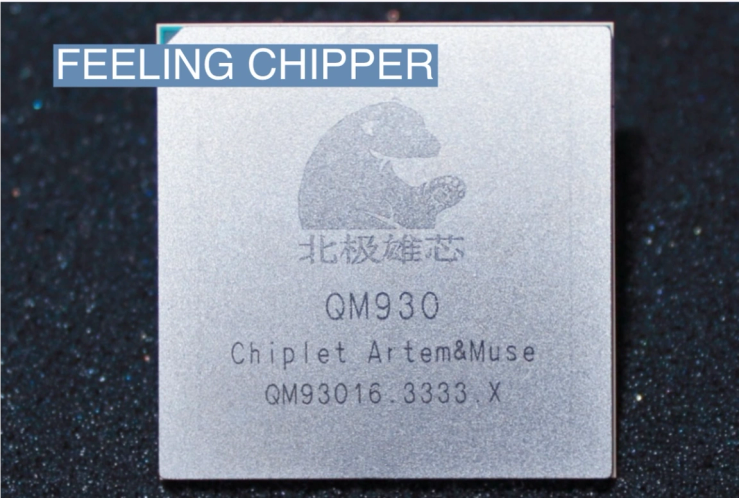
Semafor Signals
China invests in ‘Chiplet Valley’ to bypass US sanctions
Insights from MIT Technology Review, Bloomberg, and Nikkei Asia

The News
China is betting on new “chiplet” technology to make its semiconductor industry more self-sufficient as it faces ongoing U.S. sanctions blocking the import of certain materials and machines to make the most advanced chips.
Unlike traditional chips, which cram all components onto one chip, chiplets break chips down into smaller, specialized modules. This allows for a mix-and-match assembly depending upon needs. The tech is cheaper to manufacture, and can potentially achieve similar levels of computing power to a regular chip.
SIGNALS
China is investing heavily in chiplets
A top Chinese state research fund is planning to give out up to $6.5 million for chiplet academic research projects in the next four years, MIT Technology Review reported, in its bid to boost the technology. Local government officials are also trying to attract chiplet companies and startups to Wuxi, a city in eastern China that is “positioning itself to be the hub of chiplet production — a “Chiplet Valley.” A Reuters analysis found that at least 20 policy documents have referenced chiplets as part of a broader strategy to increase “key and cutting-edge technologies.”
The US is betting on advanced packaging
The Biden administration is also investing in bolstering the U.S. semiconductor industry with a focus on advanced packaging — bringing multiple chips together to make devices faster and cheaper — to become “a global leader” in the process. Currently China has 38% of the world’s assembly, testing, and packaging market while Taiwan has produced more than 50% of the world’s semiconductors. “Packaging is the new pillar of innovation in the semiconductor industry” and could help “bridge the gap” for the U.S., one tech analyst told Bloomberg.
Chinese firms aim for chipmaking self-reliance
Last year Chinese phone brand Huawei released the new Mate 60 Pro smartphone, equipped with 5G speed capabilities and the new Kirin 9000S chipset that was developed by China’s own domestic foundry SMIC. A Nikkei Asia breakdown of the phone revealed that 47% of the components were sourced in China, up 18 percentage points from a model analyzed three years ago.
“It was said that China’s own technology would be seven years behind, but it’s a surprise they caught up in five years,” one tech researcher said. It is “abundantly clear” that the U.S. sanctions “are failing,” wrote authors of a post on SemiAnalysis, a blog about the semiconductor industry, on Substack. The Mate 60 Pro has become a source of national pride for some Chinese citizens, with one telling NBC News he was “buying domestic chips ... to support my own country.”

